Wine Blend Spotlight: Mettler Ranch GSM
A beautiful blend of three Rhone varietals: Grenache, Syrah, Mourvedre. All three of these varietals trace back to the Mediterranean coast and thrive in the Lodi climate. They blend poetically together, each bringing a different flavor profile. Grenache adds a fresh raspberry flavor. The Syrah brings savory dark fruit flavors and a velvety mouth-feel. Mourvedre adds a nice tannin structure and herbaceous aromas. A delicious wine to try!

You can ferment it a number of ways. You can do what is called a “field blend” and blend everything at crush. Or you ferment each varietal seperately. Either way makes a great wine. It all comes down to the equipment you have and the amount of time you have. If you don’t have a lot of storage vessels then doing a field blend is the way to go.
Field Blend Fermentation:
- Crushing and Fermenting: After harvesting, co-ferment the grapes together in the same fermentation vessel. This means that the Grenache, Syrah, and Mourvèdre grapes are all mixed together from the start. The co-fermentation process allows for the blending of flavors and characteristics at the earliest stage.
- Temperature Control: Control the fermentation temperature carefully, as each grape variety may have different requirements. Find a temperature that works well for all three varieties to ensure proper extraction of flavors and tannins.
- Taste and Adjust: Monitor the fermentation process and taste the wine to assess the development of flavors. Make any necessary adjustments, such as adding yeast or adjusting the temperature, to achieve the desired characteristics.
- Aging: After fermentation, age the wine in suitable containers, such as oak barrels or stainless steel tanks. Aging allows the flavors to meld and develop complexity.
- Bottling: Once the wine has aged to your satisfaction, bottle it. Label the bottles with the vintage and the type of field blend GSM.
- Enjoy: Once the wine has aged to your satisfaction, bottle it. Label the bottles with the vintage and the type of field blend GSM.
Creating a field blend GSM wine is a unique approach that requires careful planning and execution in the vineyard. It can result in a wine with distinctive characteristics that reflect the terroir and the synergy of the three grape varieties grown together.
Fermenting the Grapes Seperately:
- Fermentation: Fermenting each grape variety separately helps control the extraction and balance of flavors. Add yeast to start the fermentation process. Pro Tip: Use different yeasts for each batch and you will create even more complexity!
- Temperature: Monitor and control the fermentation temperature. Grenache, for example, generally benefits from higher fermentation temperatures, while Syrah and Mourvèdre might require lower temperatures to preserve their desired characteristics.
- Taste and Analyze: Taste the wines from each varietal to understand their individual characteristics. Analyze factors such as aroma, flavor, acidity, tannin, and alcohol content.
- Blending Trials: Once each wine has completed fermentation and has been aged to your liking, start experimenting with different blends. This is where the art of blending comes into play. Start with small trial blends and make adjustments to the ratios until you achieve the desired flavor profile and balance.
- Age the Blend: Blend the wines together and allow the blend to age in a suitable container, such as oak barrels or stainless steel tanks. The aging process helps the different components integrate and develop complex flavors. *For more information on againg your wines, check out this blog post
- Regular Tasting: Blend the wines together and allow the blend to age. The aging process helps the different components integrate and develop complex flavors.
- Bottle: Once you’re satisfied with the blend and the wine has aged to your liking, bottle it. Make sure to label the bottles appropriately, indicating the vintage and the blend.
- Enjoy: Allow the bottled wine to rest for a period before opening and enjoying. GSM blends often benefit from some additional bottle aging to reach their full potential.
GSM blends are known for their bold, rich, and complex flavor profiles, often characterized by red fruit, spice, and earthy notes. The proportions of each grape variety in the blend can vary, but Grenache is typically the dominant grape, with Syrah adding structure and Mourvèdre contributing depth and complexity. Experiment with different proportions to create your own unique GSM wine blend.
The Mettler Ranch wine grapes are available for purchase every Fall Season. If you are interested in the Mettler grapes we suggest making a pre-order by mid-August. For more information on the Mettler Ranch click here.
We’re here to help when you need it
Musto Wine Grape offers a variety of products as well as services including testing and support. Email sales@juicegrape.com or call (877) 812 – 1137 to speak with someone who can assist you.
Mettler Ranch – Musto’s Newest Vineyard in Lodi, CA
The Mettler Ranch
Musto Wine Grape is excited to announce their newest vineyard addition, the Mettler Ranch. The Mettler family has been farming wine grapes since the 1770’s in California. They focused their vineyard growing in Lodi in the 1800’s. Their family is now in its eighth generation of wine grape growing, with the 6th and 7th generation both recipients of the Agricultural Hall of Fame. It’s safe to say that vineyard farming is in their blood.
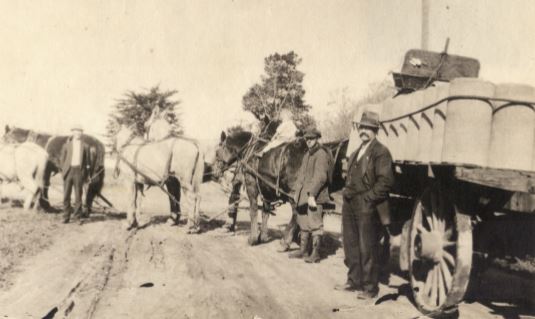
Regardless of their history, the Mettler family is constantly introducing new and progressive practices to create high quality wine grapes. They farm all of their vineyards sustainably (via LODI RULES) and as organically as possible; with certain blocks being certified organic by the CCOF (California Certified Organic Farmers). They use integrated pest management, cover crops, composting; and disease control through trellising, shoot positioning and leaf removal. The Mettler’s believe in farming the land for healthy vines and consistent wine quality.
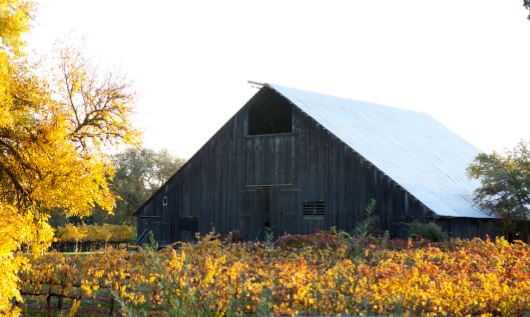
Organic Farming at a Glance:
Soil:
- Building organic matter within the soil is key to organic farming. You must feed the soil in order to feed the plant. The balance of the soil structure is critical not only in organic farming but to the overall health of the vine.
- Cover crops in vineyards are used to fix nitrogen and soil tilth. They create a habitat for beneficial insects and reduce erosion. Cover crops can also be helpful in weed control, and reduces air pollution by keeping dust down in the vineyards
- Use of compost on the vineyards floor if needed.
Disease Control:
- Prevention is key
- Modern trellising, shoot positioning, and leaf removal allow sunlight penetration and air flow into the vine’s canopy, greatly reducing mildew pressure.
Pest Control:
- Organic farmers must encourage a healthy ecosystem; to include and encourage predatory insect species, which eat pests
o By not using pesticides, beneficial insects remain in the vineyards. - Owl boxes placed in vineyards create a natural form of pest control
Weed Control:
- Mechanized in-row cultivator
- Hand hoeing
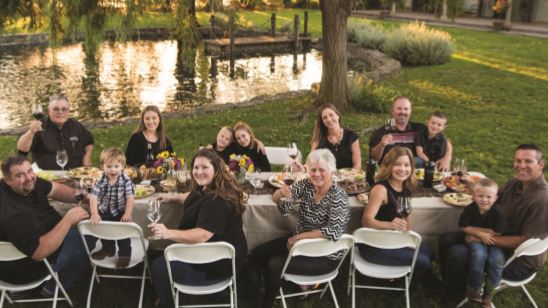
The Mettler family farms over 800 acres in the Lodi Appellation, some of which date back to their family’s original properties which are over 100 years old. In keeping with their progressive nature, they were the first to introduce French clones in the Lodi region. The family is very focused on producing wine grapes that make consistent and richly crafted wines.
PS- you might have noticed Berton Costamagna from Delta Packing (another one of our Lodi wine grape providers) in the Mettler family photo. This is because Berton is married to Kelli Mettler (now Costagmagna). Kelli is head of Wine Sales for her family’s winery. You might have met Kelli and Berton at our last Winemaker Competition Celebration. As a family run business, we at Musto Wine Grape love being able to work with other growing family businesses. If you visit Mettler Vineyards you’ll see their wine dogs and next generation running around in the vineyard, including Berton and Kelli’s son Caden.
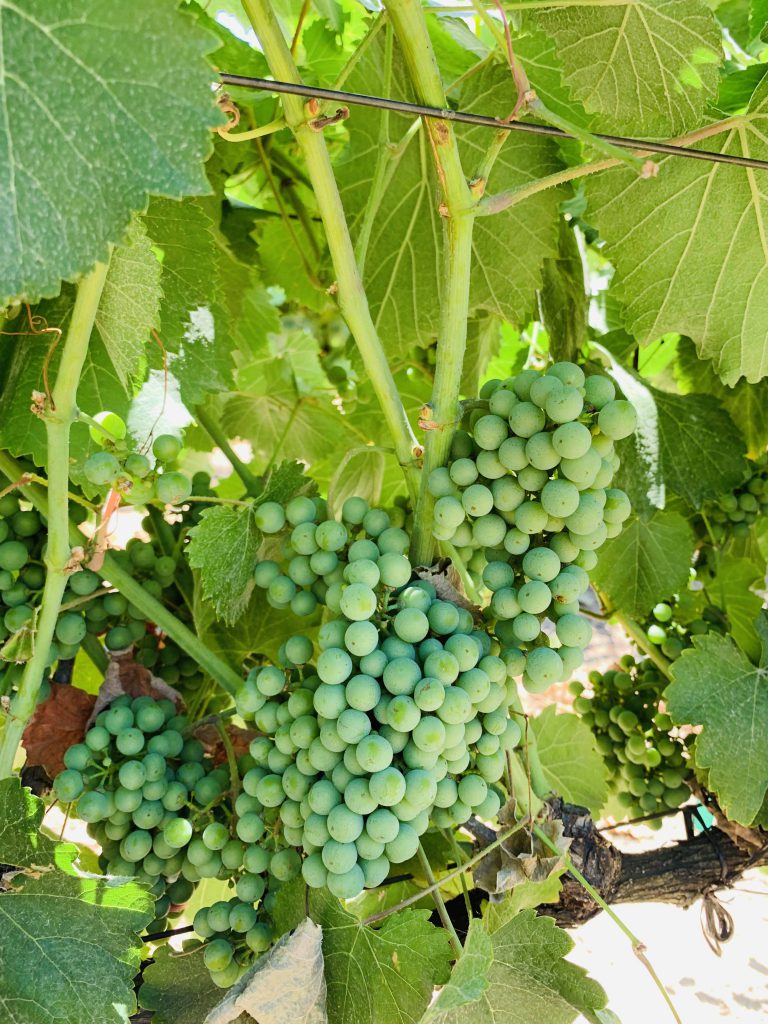
Wine Grape Varieties Available:
- Pinotage
- Grenache Noir
- Merlot
- Petite Sirah
- Syrah
- Cabernet Sauvignon
- Zinfandel
- Sangiovese
*All grape varieties are available in 36lb cases or in frozen must by request
The Mettler Vineyards:
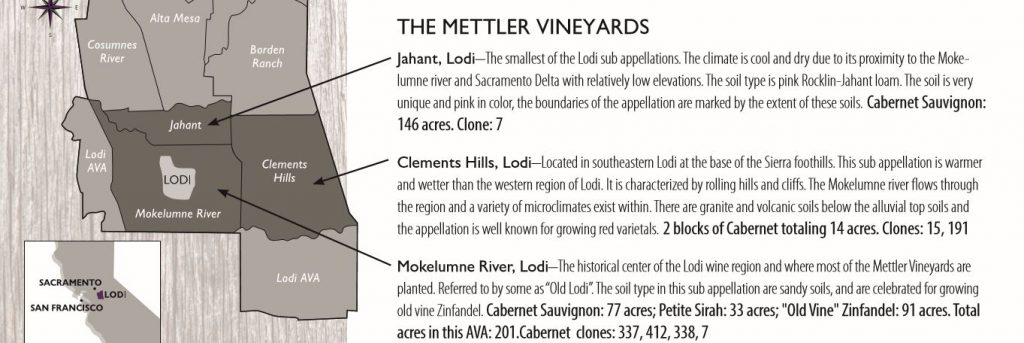
The Mettler Vineyards are located in Lodi’s Mediterranean Climate. Warm, dry summers, and cool moist winters. The dry warm summer days allow Lodi grapes to develop ripe fruit flavors while the distinctive breezes maintain the natural acidity for structure and complexity in the finished wines.
Mettler’s Wines of Distinction:
The Mettler family has their own winery located in Lodi, CA. Their winemaker, Adam Mettler recently won Winemaker of the Year from Wine Enthusiast. He creates award winning wines for many wineries in Lodi, including his family’s winery.
Awards Received:
- Cabernet Sauvignon: Red, velvety and complex with true varietal characteristics
- 92 Points – Wine Enthusiast 2019
- 91 Points – Wine Enthusiast 2020
- Petite Sirah: Deep and layered with concentrate flavors and excellent balance
- 94 Points – Wine Enthusiast 2019
- #33 of the Top 100 Wines of 2019 – Wine Enthusiast
- 92 Points – Wine Enthusiast 2020
- Old Vine Zinfandel: Hearty and full bodied with a genuine “zin” personality
- 91 Points – Wine Enthusiast (Feb. 2020)
- 92 Points – Wine Enthusiast (April 2020)






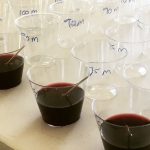
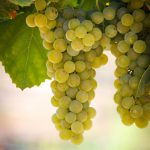
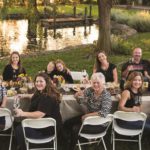
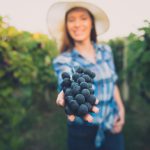
Recent Comments